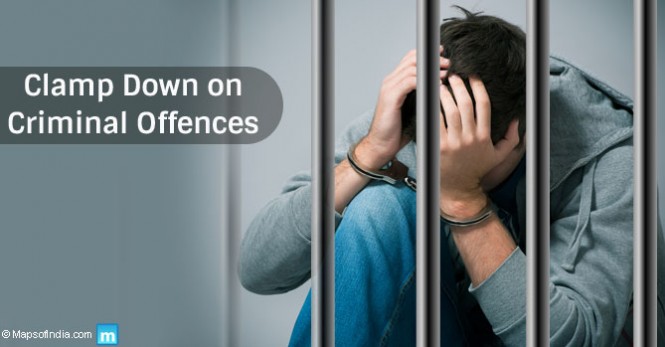 The Nirbhaya Case
The Nirbhaya Case
India’s juvenile justice system came into focus after the 2012 Delhi gang rape, a case where a 23-year-old girl was brutally assaulted and gang raped in a bus in the Indian capital city. The girl was called Nirbhaya by the press and the incident sparked large-scale protests across the country. The incident caught the attention of both national and international media and became a turning point for women’s safety issues in the country.
One of the major outcomes of the protests following the case was the review of India’s legal processes involving the investigation and prosecution of crimes such as rape. Five of the six accused in the case were sentenced to death by hanging. The charge sheet filed by the Delhi Police also named a sixth accused – a juvenile – as the most brutal offender. According to various ID documents held by the accused, his age was revealed to be 17 years and 6 months as on the date of the crime. Despite various groups calling for him to be tried as an adult and being handed the same punishment as the others, this accused was tried under the Juvenile Justice (Care and Protection of Children) Act, 2000. He was sentenced to three years of imprisonment at a reform facility. There was huge public outcry as the sentence was deemed a light one vis-à-vis the brutality of the crime. The incident triggered a pressing need to review and amend the Juvenile Justice Act.
An amendment to the act was also triggered by a number of recent incidents in which terrorists infiltrating the country have been known to misuse the act and declare themselves under 18 (years age) to avoid any serious consequence. Prior to the amendments, the act only allowed for a maximum term of three-year imprisonment for any criminal under the age of 18.
Proposed Changes to the Juvenile Justice Act
On 23 April 2015, the Union Cabinet approved a number of amendments to the Juvenile Justice Act. One of the major changes to the act will be the removal of Clause 7. The proposed amendment makes way for a person to be tried after having attained the age of 21 for a heinous crime committed when the defendant was between the ages of 16 and 18 depending on the assessment of a Juvenile Justice Board. The changes also make way for increasing the period of preliminary inquiry by the Juvenile Justice Board for offenders (of heinous offences) between the ages of 16 and 18. There is also a proposed enhancement of the reconsideration period for parents to surrender their children and a number of changes in domestic and inter-country adoption policies as well.
Popular Opinion
Ever since the Nirbhaya case, popular opinion has been strongly in favour of making the amendments, at least for trying juvenile criminals of heinous crimes such as murder, rape and extreme violence, as adults. Nirbhaya’s parents have gone on record to welcome the Union Cabinet’s move to approve of the amendments. “A juvenile should be tried as per the crime he commits,” said the girl’s father according to news reports.
Criticism against Amendments
Despite the popular opinion urging for the enactment of amendments, there have been quite a few criticisms. Advocates of the act in its previous form claim that it is not leniency but reformation that the law seeks to achieve. Children are easily influenced by circumstances and crime is due to their inability to cope with circumstances in the way that adults may deal with them. In a country such as India a great number of children are enticed into criminal activity due to marginalisation through poverty, social circumstances, human trafficking, abuse, and exploitation. These children need the protection of society and the justice system rather than being charged with criminal misconduct.
Another major argument is that of the “Slippery Slope”. Once we decide to try juveniles between the ages of 16 and 18 as adults, there is no protection against a juvenile delinquent who is 15 years and 11 months old. The boundaries of the law will be tested once we embark on the path. Critics feel that the amendment is more a reaction to the recent spate of juvenile crimes that have been reported rather than any policy decision.
Others, however, believe that the mind of a 16 to 18 year old adolescent is quite capable of grasping the gravity of the offence and at least in cases of heinous offences, trial as an adult is the perfect solution. It shall also dissuade prospective juvenile criminals from attempting crimes.
Legal Systems in Other Countries
A number of countries in the world allow for juvenile delinquents (some even as young as 12) to be tried as adults in the criminal courts. The nature (severity) of the offence and prior records are often taken into consideration while such a differentiation is made.
In the US, for example, a number of states allow for offenders over the age of 10 to be tried as adults while other states allow for children of any age to be tried as adults for crimes such as homicide. In England and in Wales, a juvenile delinquent may be tried as an adult if the crime is committed alongside an adult offender. Sometimes a juvenile offender may also be tried as an adult in cases of homicide, sexual assault, and other grave crimes.
In other countries such as Japan, anyone under 20 years of age is considered a delinquent. As of 2008, capital punishment for juvenile offenders persisted in very few countries of the world including Congo (DRC), Iran, Nigeria, Pakistan, Saudi Arabia, Sudan, and Yemen but Pakistan and Iran have done away with it since.
Overruling the recommendations of a parliamentary panel, the Union Cabinet approved amendments to the Juvenile Justice Act and made way for trial of juveniles between 16 and 18 years of age under the Indian Penal Code (IPC) (in case of heinous crimes). The amended bill shall be presented to the parliament for approval in the current budget session.
Read More:




